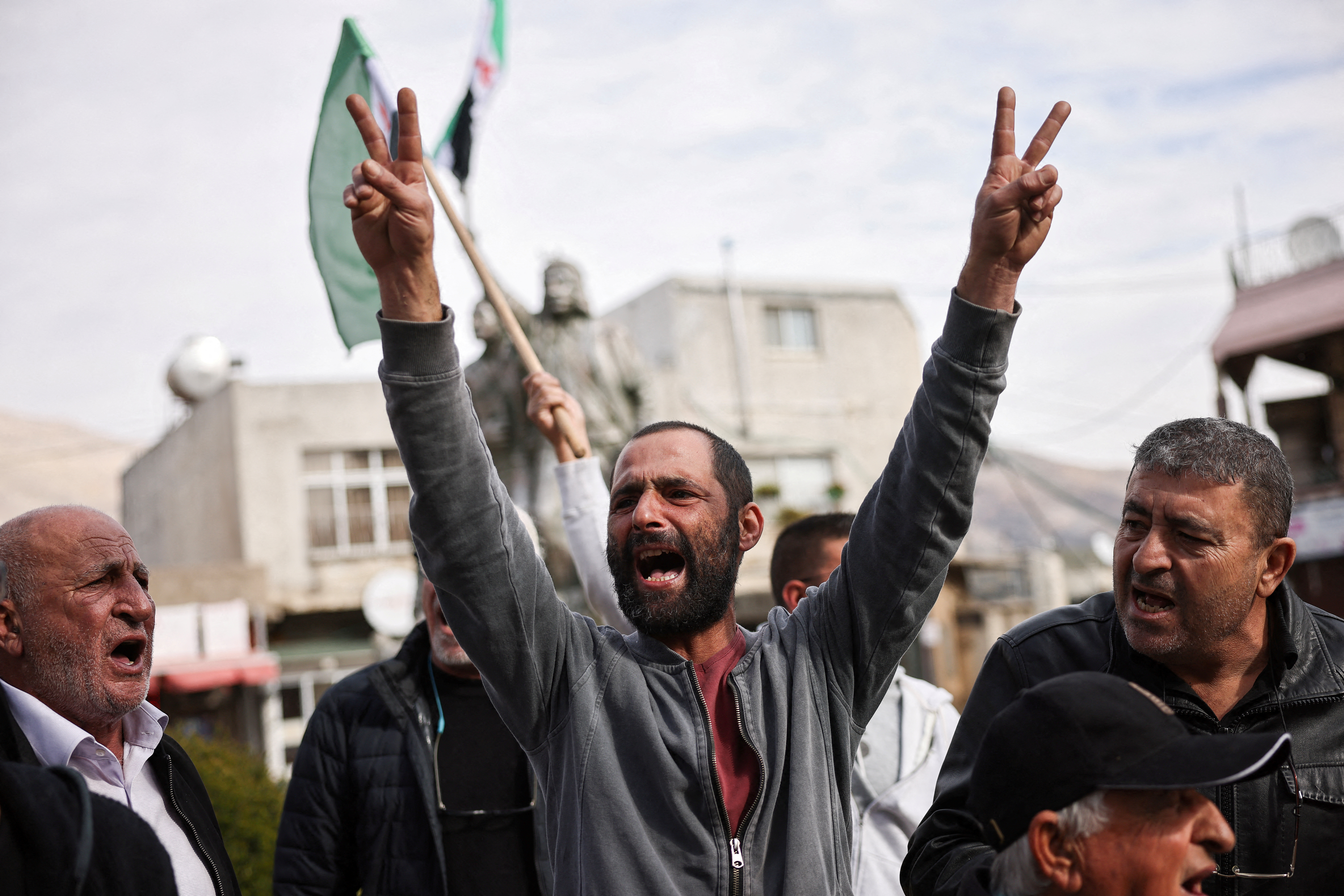Mustafa Bekkur, governor of Suwayda province in southern Syria, said the Druze-majority region remains calm despite Israel's provocations, emphasising that its people are Syrians and patriotic and assuring that separatism or discrimination will never occur on their territory.
In an interview with Anadolu Agency, Bekkur said the people of Suwayda would play a role in restructuring the security forces, acknowledging the local population's long-standing distrust of the state during the previous regime's rule. He added that Suwayda's armed groups will soon join the Ministry of Defence, with some already coordinating with Damascus.
Bekkur highlighted his cooperation with Suwayda's main religious leaders, including prominent Druze figure Hammoud al-Hinnawi, stressing that the people of Suwayda, regardless of their roles, are committed to the unity of Syria. He also acknowledged the challenge of rebuilding trust after the regime created a barrier between the state and the people.
He noted that President Ahmad al Sharaa has called for investment projects from all provinces, adding that while plans exist, implementation depends on improved security. Bekkur shared that he has recently met with investors in Suwayda and vowed to remove all bureaucratic obstacles to encourage economic activity.
Reaffirming Druze loyalty to Syria
Hammoud al-Hinnawi, one of the three main religious leaders in Suwayda, also told Anadolu Agency that they reject accusations against the Druze, oppose division, and remain loyal to Syria and Arab-Islamic causes.
Hinnawi emphasised his support for societal peace and dialogue throughout the Syrian civil war, both within Suwayda and with neighboring regions. Referring to the deadly incidents in Latakia and Tartus in March, he said such violence would not be tolerated in Suwayda.
He called for peace across all sects in Syria, particularly for the Alawite community, and stressed the need for tolerance and dialogue. He emphasised the Druze's patriotism and their loyalty to Syria and Damascus and reaffirmed that the Druze, as followers of Tawhid, are Muslims and would never allow their history to be distorted.
Hinnawi explained that the local population’s refusal to surrender weapons stems from their past traumas, particularly with the terror group Daesh, emphasising Syria's history of war and the right to self-defence.
Condemning Israel's attacks on Gaza, he noted that his family lives in Palestine and highlighted the Druze presence in Palestine, Lebanon, and Jordan.
Hinnawi expressed hope for Syria’s future, wishing for peace, safety, unity, and solidarity for its people.

Israel seeks Druze support
Israel has attempted to gain support from Syria's Druze population, particularly after the October 7, 2023, attacks.
The Druze community, which has historically maintained a degree of autonomy in Syria, has voiced opposition to foreign interference, especially from Israel.
While the Syrian government continues to assert that it protects all sects of the country equally, Israel has repeatedly claimed that the Druze community in Syria is under attack, even suggesting military intervention to protect them.
After the fall of the Bashar al-Assad regime in December, Israel expanded its occupation of the Syrian Golan Heights by seizing the demilitarised buffer zone, a move that violated a 1974 disengagement agreement with Syria.















